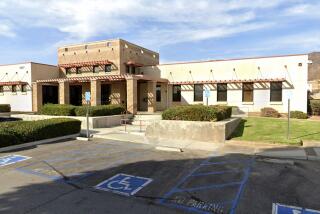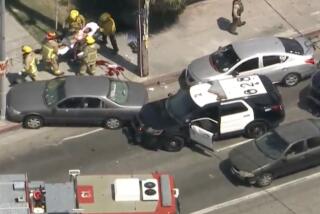Attorneys say independent autopsy shows Dijon Kizzee was shot 15 times
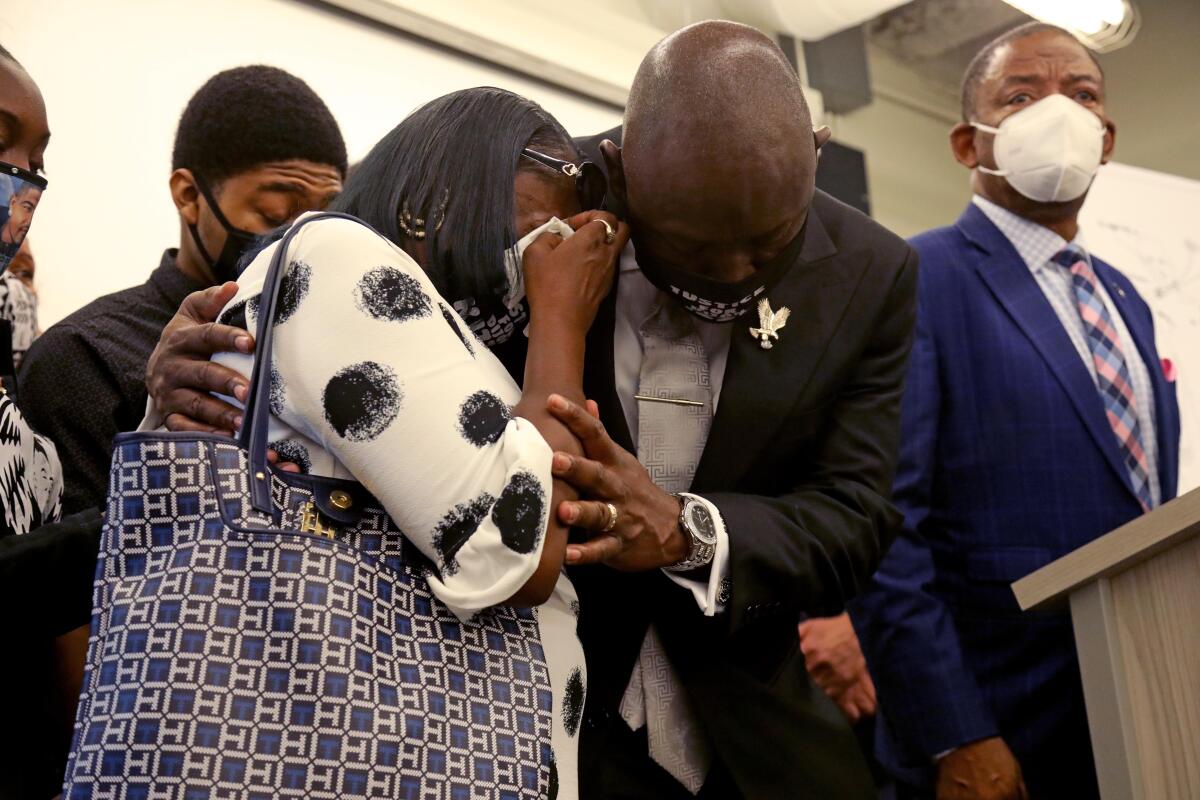
- Share via
Attorneys representing the family of Dijon Kizzee said the 29-year-old man sustained 15 gunshot wounds and disputed the Sheriff’s Department’s assertion that he pointed a gun at deputies before he was shot in South L.A. last month.
At a news conference Tuesday, attorney Carl Douglas said deputies fired some of the shots when Kizzee was already on the ground, and that the gunfire didn’t immediately kill him. He said those findings came from an independent autopsy commissioned by the family and displayed a body diagram showing the entry point of each wound.
“What this shows is he was alive and breathing and writhing in pain when the officers continued to stay away,” Douglas said, suggesting that deputies did not render aid during those critical moments as Kizzee bled to death on Aug. 31. Kizzee’s family members stood by, wearing black face masks that said, “Justice for Dijon Kizzee.”
The shooting occurred in the 1200 block of West 109th Place in the Westmont neighborhood after, deputies alleged, Kizzee was riding his bicycle in violation of vehicle codes. The Times has identified the two deputies as a trainee and his supervisor.
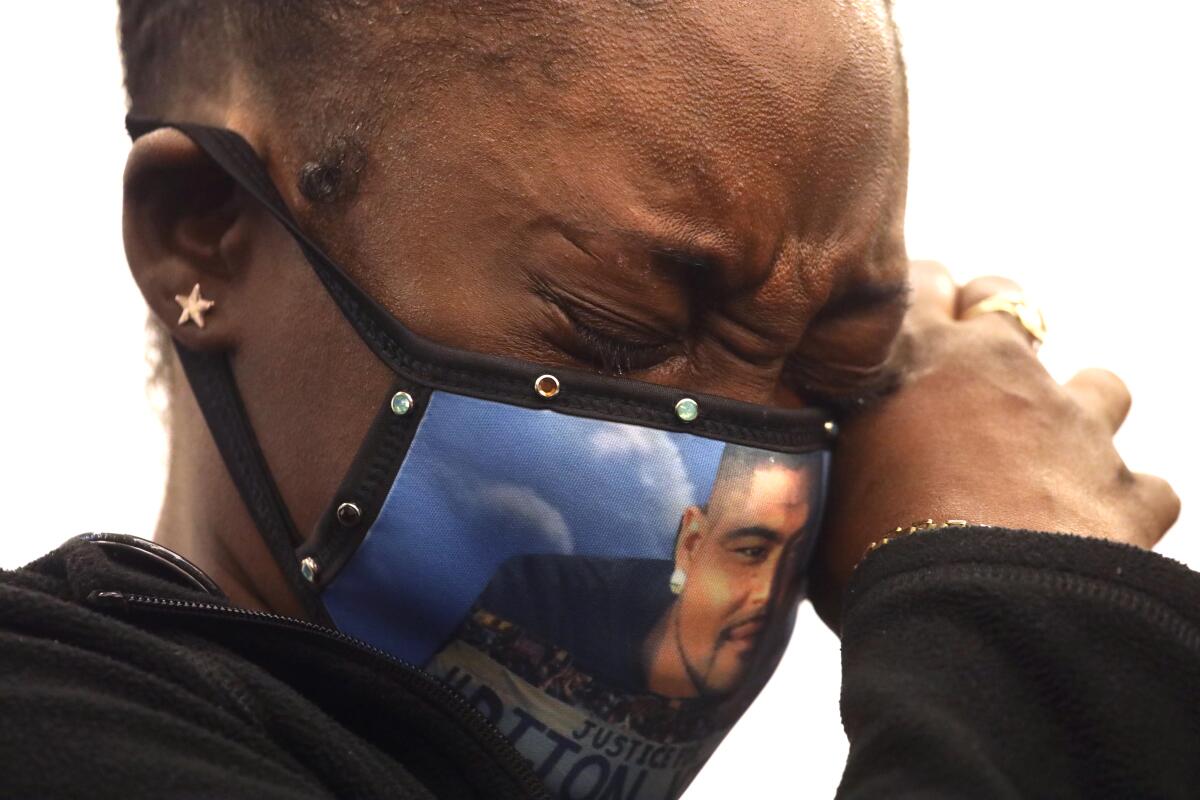
Douglas said witnesses reported that Kizzee did not have anything in his hands when he was shot. The witnesses also said deputies did not try to deescalate the encounter or give warnings before shooting, Douglas said. He did not identify the witnesses.
The news conference followed a briefing last week at which Sheriff Alex Villanueva and other sheriff’s officials offered new details of what led up to the shooting, which has generated national attention and triggered days of protests.
They said Kizzee was riding his bike on the wrong side of the street when he was stopped by two deputies from the South L.A. station. Capt. Kent Wegener said Kizzee made a U-turn in front of deputies, dropped his bike on the sidewalk and ran.
At a news briefing, sheriff’s officials offered yet another version of events of what led up to the fatal shooting on August 31
As one deputy caught up to Kizzee, Wegener said, Kizzee lifted his arms, clothes in each hand, struck a deputy in the face, and a pistol dropped to the ground.
“He bends over, reaches, picks up the gun and is shot as he stands with the gun in hand,” Wegener said. “You will see that the deputy struggling with Kizzee does not arm himself until Kizzee bends down to pick up the gun he dropped.”
That narrative conflicts in some ways with prior versions of events. Sheriff’s officials had previously said that the shooting occurred after the gun fell to the ground. A day later, the Sheriff’s Department said it happened when Kizzee “made a motion” toward the gun.
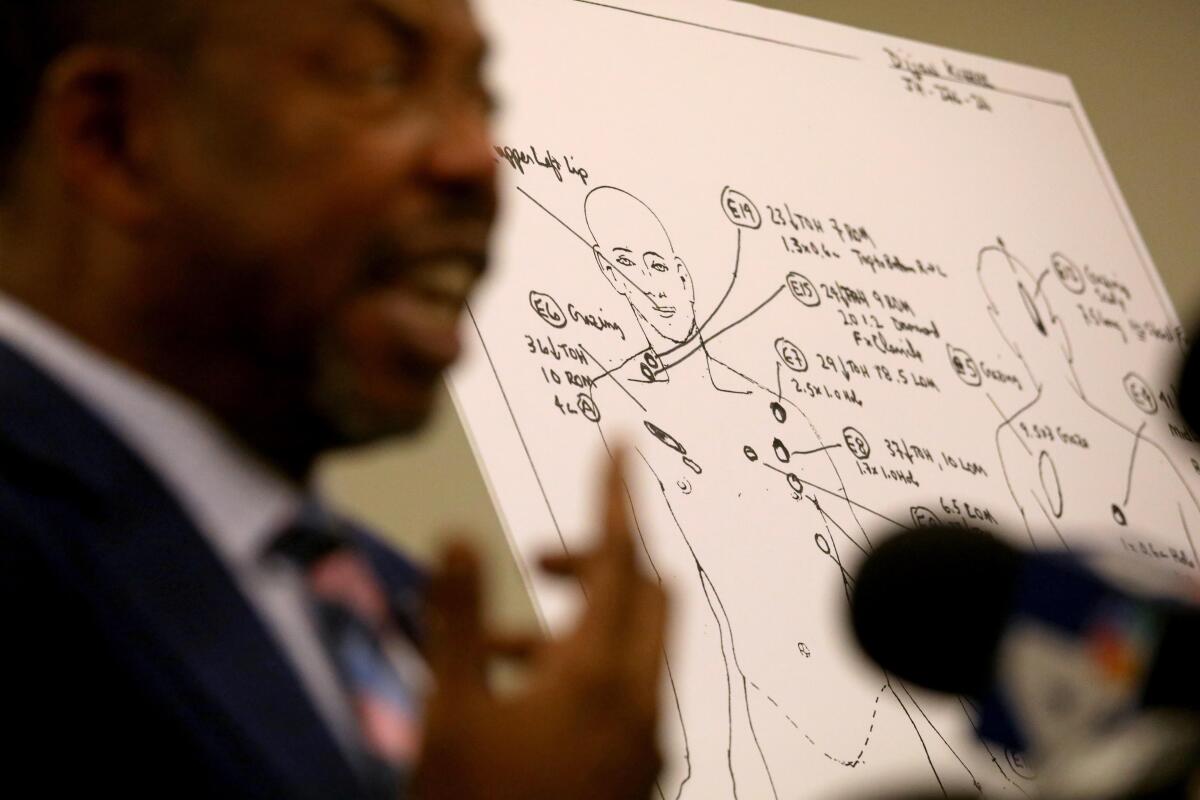
More to Read
Sign up for Essential California
The most important California stories and recommendations in your inbox every morning.
You may occasionally receive promotional content from the Los Angeles Times.

